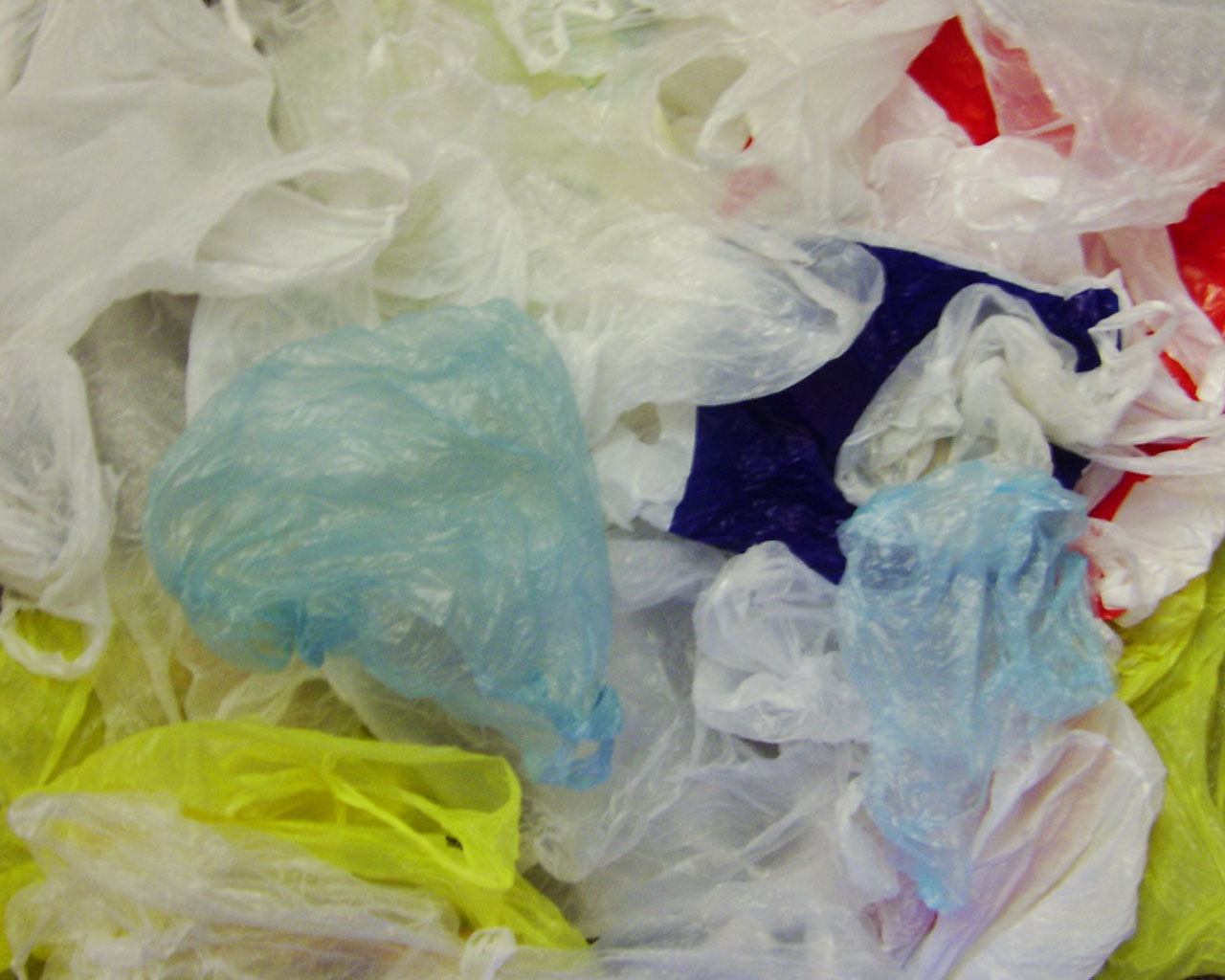
Image by Trosmisiek via Creative Commons
By James Carson
Plastic carrier bags have been part of Britain’s retail landscape since their introduction by supermarkets in the 1970s. Dispensed freely and liberally, the bags were originally made of polythene before evolving to the high density polyethylene (HDPE) bags most commonly in use today.
For decades, the plastics industry has been fighting off environmental campaigners’ claims that single-use bags are damaging to the environment and create a significant litter problem. But there have been increasing signs that the carrier bag’s days are numbered.
- In 2002, the Republic of Ireland became the first country in Europe to introduce a tax on single-use carrier bags
- In 2007, Italy banned the distribution of non-biodegradable plastic bags
- In 2014, California became the first US state to prohibit stores from providing single-use plastic bags – subject to a 2016 referendum.
Next month, charges for carrier bags are being introduced in England. The 5p charge will come into force on 5 October, bringing England into line with the rest of the United Kingdom.
Wales
Wales was the first part of the UK to introduce charges for carrier bags, in 2011. The charge is part of the Welsh Government’s strategy to minimise the proportion of waste going to landfill to 5% by 2025, and eliminating it altogether by 2050.
An evaluation of the impacts of the charge on behaviour and attitudes of consumers found that it had helped to increase own bag use in Wales (from 61% to 82%) and was supported by a majority of the Welsh population. However, no evidence was found that the carrier bag charge led to behavioural spill-over to other waste-related behaviours.
Northern Ireland
The levy on single-use carrier bags was introduced in Northern Ireland in 2013. The charge has been a success story, with a 42.6% annual reduction in 2014 following a previous drop of 71%, after the carrier bag charge was introduced.
In 2013/14, £3.4m of the proceeds from the levy were spent on more than 250 projects delivered by the Northern Ireland Environment Link (NIEL) Challenge Fund, Natural Heritage grants, Sustainability Innovation Fund and Local Clean-Up Support projects.
Scotland
The Single Use Carrier Bags Charge (Scotland) Regulations came into force in October 2014. Before that, Scotland used more than 800 million new single-use carrier bags every year – the highest usage in the UK. Figures published this summer, however, showed that the number of plastic bags provided by supermarkets in Scotland fell by 147 million last year, despite the charge only being in place for the last 11 weeks of 2014.
Scotland’s environment minister, Richard Lochhead, hailed the results as “astounding”, and said the charge was driving behaviour change to tackle litter and reduce waste. Time will tell whether this impressive start can be maintained. After an initial fall in carrier bag usage during the first year of charging in 2011-12, Wales saw a 5.2% increase in usage during 2014.
England
From October, large shops in England will be required to charge 5p for all single-use plastic carrier bags. In 2013, the number of single-use bags from English supermarkets rose from 7.4 billion to just over 7.6 billion. It’s hoped that the forthcoming charge will be instrumental in cutting carbon emissions, and reducing litter.
However, the House of Commons Environmental Audit Committee (EAC) has described the English regulations as “a complete mess” The MPs are especially unhappy at the exemptions for smaller retailers, and exclusion of biodegradable bags.
Only retailers with 250 or more full-time employees will have to levy the 5p charge for carrier bags, but trade bodies for smaller retailers say their members want to participate and claim that the exemption will distort competition and cause confusion.
The EAC believes that leaving biodegradable bags out of the scheme could harm the environment by causing litter and damage to wildlife.
Follow us on Twitter to see what developments in public and social policy are interesting our research team.
The Idox Information Service can give you access to a wealth of further information on the environment and waste management; to find out more on how to become a member, contact us.
Further reading*
The single use carrier bag charge (House of Commons Library briefing paper no CBP7241)
Consumer behavioural study on the use and re-use of carrier bags 2012: final report (Scotland)
The goods, the bag and the ugly (waste control)
*Some resources may only be available to members of the Idox Information Service
Share
Related Posts
Supporting residents on the decarbonisation journey: leveraging data for effective retrofit projects
As the drive towards decarbonisation intensifies, the social housing sector’s ability to collect, store and manage vast amounts of data becomes increasingly critical. With a shared goal of creating warmer, carbon-free homes, housing associations’ strategic use of data is essential ....
The recent spikes in energy costs have thrown into sharp focus the challenge of heating our homes. Domestic heating is important, not just for our comfort and wellbeing, but to reduce humidity and prevent condensation. But because traditional heating systems ....
By Ian Babelon A new-old concept for proximity “Are we there yet?” Parents may patiently nod to their children’s insistent nudges on a 20-minute journey to… somewhere. Quite rightly, researchers have asked: twenty minutes to what? The answer may well ....
By Sarah Perry At the end of June, GrantFinder attended The Chartered Institute of Housing’s annual conference, Europe’s largest housing festival. The event took centre stage at Manchester Central, bringing together industry experts, policymakers, and housing practitioners from across the ....
